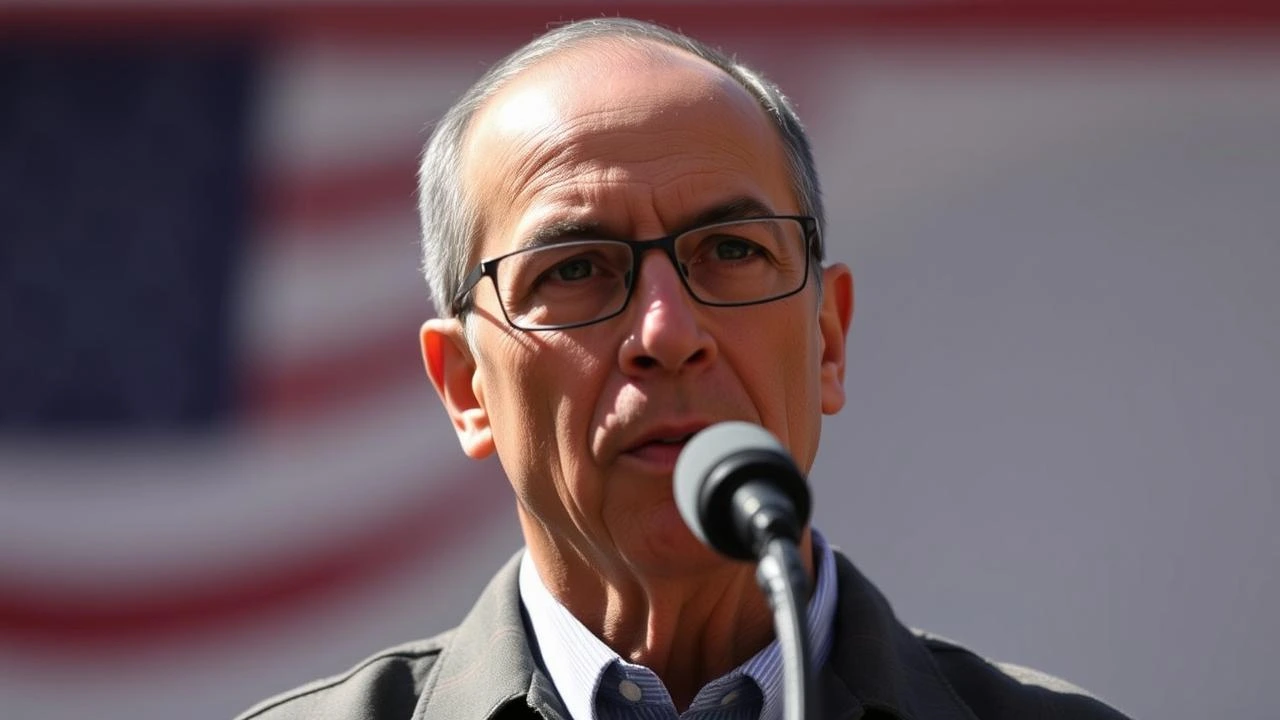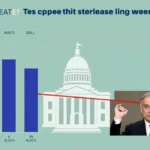In contemporary political discourse, the call to “deport them all” often resonates loudly within certain segments of the population. This mantra, typically advocating for the mass expulsion of undocumented immigrants and a dramatic reduction in all forms of immigration, presents a seemingly simple solution to complex challenges such as border security and economic strain. However, a deeper examination of public sentiment reveals a nuanced and often contradictory landscape, suggesting that this hardline “deport them all” playbook largely fails to align with the broader consensus of public opinion on immigration. Far from a monolithic desire for mass expulsions, most citizens hold more complex and often pragmatic views, favoring a blend of enforcement, integration, and pathways to legal status.
The ‘Deport Them All’ Narrative: A Closer Look
The “deport them all” approach is generally characterized by several key tenets:
- Mass Deportations: The systematic identification and removal of all undocumented immigrants residing within a country’s borders, regardless of their length of stay, family ties, or economic contributions.
- Increased Border Enforcement: A significant escalation of physical barriers, surveillance, and personnel at borders to prevent new entries.
- Reduced Legal Immigration: Often, an accompanying desire to drastically cut down on legal immigration avenues, including family-based visas, employment visas, and refugee admissions.
- Limited Pathways to Citizenship: A rejection of any form of amnesty or regularization for undocumented immigrants, often including those brought as children (Dreamers).
- Punitive Measures: Policies aimed at making life difficult for undocumented individuals, such as restrictions on employment, housing, and public services, to encourage “self-deportation.”
This narrative often gains traction during periods of economic anxiety or heightened national security concerns, appealing to those who feel that immigration is unchecked or threatening to national identity and resources. Proponents argue that such measures are essential for upholding the rule of law, protecting national sovereignty, and ensuring the economic well-being of native-born citizens. Within this framework, the presence of undocumented immigrants is frequently framed as a burden on social services and a threat to wage levels, thus necessitating their removal.
The Nuance of Public Opinion: Beyond the Slogan
Despite the loud rhetoric, comprehensive polling data consistently demonstrates that public opinion on immigration is far more complex and multifaceted than the “deport them all” slogan suggests. Most individuals do not hold extreme views on either end of the spectrum but instead favor a more balanced approach that combines strong border security with opportunities for legal immigration and, crucially, pathways to status for long-term residents.
Here are some key areas where public opinion diverges from the hardline stance:
- Pathways to Citizenship vs. Mass Deportation: While concerns about border security are widespread, support for mass, indiscriminate deportations is typically low. A significant majority of the public, including a notable portion of Republican voters, favors allowing undocumented immigrants who meet certain criteria (e.g., no criminal record, long-term residency, payment of taxes) to apply for legal status or even citizenship. This preference often outweighs the desire for immediate removal.
- Support for Dreamers: There is overwhelming bipartisan support for granting legal status to undocumented immigrants who were brought to the U.S. as children, commonly known as Dreamers. Majorities consistently express that these individuals, who have often known no other home, should be allowed to stay and contribute to society.
- Economic Contributions: Many recognize the economic role immigrants play, filling labor shortages, starting businesses, and contributing to tax revenues. Public understanding often extends to the realization that mass deportations would have severe negative impacts on various sectors of the economy, from agriculture and construction to healthcare and hospitality.
- Humanitarian Concerns: A substantial portion of the public is moved by humanitarian considerations, especially concerning family separations and the plight of asylum seekers. While recognizing the need for orderly processes, there is often discomfort with policies perceived as overly harsh or inhumane.
- Distinction between Legal and Undocumented Immigration: Much of the public draws a clear distinction between legal and undocumented immigration, generally supporting the former while expressing concerns about the latter. However, this concern often translates into a desire for better managed and more efficient legal immigration systems, rather than an outright rejection of all immigration.
Consider the generalized preferences often reflected in major polls:
| Immigration Policy Stance | Public Support (Illustrative) |
|---|---|
| Mass Deportation of all Undocumented | 15-25% |
| Pathway to Citizenship for Undocumented | 55-70% |
| Increased Border Security | 70-85% |
| Legal Status for Dreamers | 70-80% |
| Streamline Legal Immigration System | 60-75% |
| Addressing Root Causes of Migration | 40-55% |
Note: Percentages are illustrative of general trends observed in various reputable polls over time and may vary depending on specific question phrasing and demographics of the survey.
This table highlights a clear disconnect: while border security has broad support, the public’s preferred solution for those already within the country is largely not mass deportation but rather a mechanism for integration.
Factors Influencing Public Opinion on Immigration
Public opinion on immigration is shaped by a confluence of factors, including:
- Personal Experience: Individuals who have direct contact with immigrants, either through work or community, often hold more positive and nuanced views.
- Economic Conditions: Perceptions of economic threat or opportunity can sway opinions. In strong economies, immigrants are often seen as filling labor gaps; in weaker economies, they may be perceived as competitors for jobs.
- Media and Political Rhetoric: The way immigration is framed in news media and by political leaders significantly influences public perception, often amplifying extreme positions.
- Demographics: Younger generations and urban populations tend to hold more favorable views on immigration and pathways to citizenship than older or more rural demographics.
- National Security Concerns: Events perceived as threats to national security can increase calls for stricter border controls and skepticism towards immigration.
- Cultural Integration: Concerns about the ability of immigrants to integrate into society play a role in shaping attitudes.
The Economic and Social Realities of Mass Deportation
Beyond public opinion, the practical implications of a “deport them all” policy are staggering. Implementing such a strategy would present immense economic and social disruption:
- Economic Collapse in Key Sectors: Industries heavily reliant on immigrant labor, such as agriculture, construction, hospitality, and specific service sectors, would face severe labor shortages, leading to decreased productivity, higher costs, and potential collapse of businesses.
- Massive Financial Costs: The logistical operation of identifying, detaining, processing, and deporting millions of individuals would require astronomical government expenditure on enforcement agencies, detention facilities, and transportation, diverting funds from other critical areas.
- Social and Humanitarian Crisis: Millions of families would be torn apart, creating a profound humanitarian crisis. Children, many of whom are U.S. citizens, would be separated from their parents, leading to widespread social trauma and instability. Trust between communities and law enforcement would erode.
- Reduced Consumption and Tax Base: The removal of millions of individuals would lead to a significant drop in consumer spending, impacting local economies. Furthermore, a substantial portion of undocumented immigrants pay taxes (sales, property, and often income taxes using ITINs), and their removal would shrink the tax base.
As journalist and immigration expert Dara Lind aptly put it:
“The idea of mass deportation is far easier to articulate as a slogan than to implement as a policy. The logistical, economic, and human costs would be truly staggering.”
Alternative Approaches and Public Preference
Given the complexity and the widespread disfavor for mass deportations, public sentiment often leans towards comprehensive immigration reform that addresses multiple facets simultaneously. Common preferences include:
- Stricter Border Enforcement Coupled with Streamlined Legal Pathways: Many believe in securing the border while simultaneously making legal immigration more efficient and accessible, reducing incentives for irregular migration.
- Earned Legalization: A significant portion of the public supports a process for undocumented immigrants to earn legal status, contingent on factors like background checks, payment of fines/taxes, and demonstrating community ties.
- Addressing Root Causes of Migration: A growing number of people recognize the importance of foreign aid and diplomatic efforts to address the social, economic, and political instability driving migration from source countries.
- Prioritizing Economic Needs: Policies that allow for flexible immigration based on labor market demands are often favored, ensuring that immigrants can fill jobs that native-born workers are unwilling or unable to do.
- Support for Integration Programs: Public sentiment often supports programs that help immigrants learn English, understand local laws, and integrate into society, viewing this as beneficial for community cohesion.
Conclusion
The “deport them all” playbook, while a potent rallying cry for some, fundamentally misrepresents the nuanced views of the general public on immigration. Polling data consistently reveals a public that, while valuing secure borders, largely rejects the notion of mass, indiscriminate deportations in favor of more comprehensive and humane solutions. These solutions often include pathways to legal status for long-term residents, strong support for specific groups like Dreamers, and an acknowledgment of immigrants’ economic contributions. Policymakers who genuinely seek to address immigration challenges effectively would do well to listen beyond the loud slogans and engage with the complex, often compassionate, and eminently pragmatic opinions of their constituents. True leadership on immigration requires moving beyond simplistic rhetoric to craft policies that reflect the shared values and long-term interests of the nation.
FAQs on Immigration and Public Opinion
Q1: Is “deport them all” a new idea in immigration policy? A1: While the phrase itself might fluctuate in popularity, the concept of mass deportation has historically surfaced at various points, often during economic downturns or periods of heightened nativism. However, large-scale, voluntary or forced expulsions have been rare and met with significant societal and economic challenges.
Q2: Do most Americans support mass deportations? A2: No, most Americans do not support the mass deportation of all undocumented immigrants. Polling consistently shows that while there is strong support for border security, a significant majority favors pathways to legal status for undocumented immigrants who have lived in the country for a long time, particularly those with no criminal record and strong community ties.
Q3: What are the main economic arguments against mass deportation? A3: The primary economic arguments against mass deportation include the loss of a significant labor force in key industries (agriculture, construction, hospitality), a reduction in consumer spending, massive administrative and operational costs for deportation efforts, and a potential decrease in the overall tax base as contributing workers leave.
Q4: What is comprehensive immigration reform, and why is it often preferred? A4: Comprehensive immigration reform refers to a legislative approach that addresses multiple aspects of the immigration system simultaneously. This typically includes strengthening border security, providing pathways to legal status for certain undocumented immigrants, streamlining legal immigration processes, and addressing the root causes of migration. It is often preferred because it offers a more holistic and sustainable solution compared to single-issue or extreme approaches.
Q5: How does public opinion differ on undocumented immigrants versus DACA recipients (Dreamers)? A5: There is a notable distinction. While opinions on undocumented immigrants generally are mixed but lean towards pathways to status, support for DACA recipients (Dreamers) is overwhelmingly positive and bipartisan. Most Americans believe that individuals brought to the U.S. as children, who have grown up in the country, should be granted legal status and a path to citizenship.
The ‘Deport Them All’ Playbook Doesn’t Match Public Opinion






